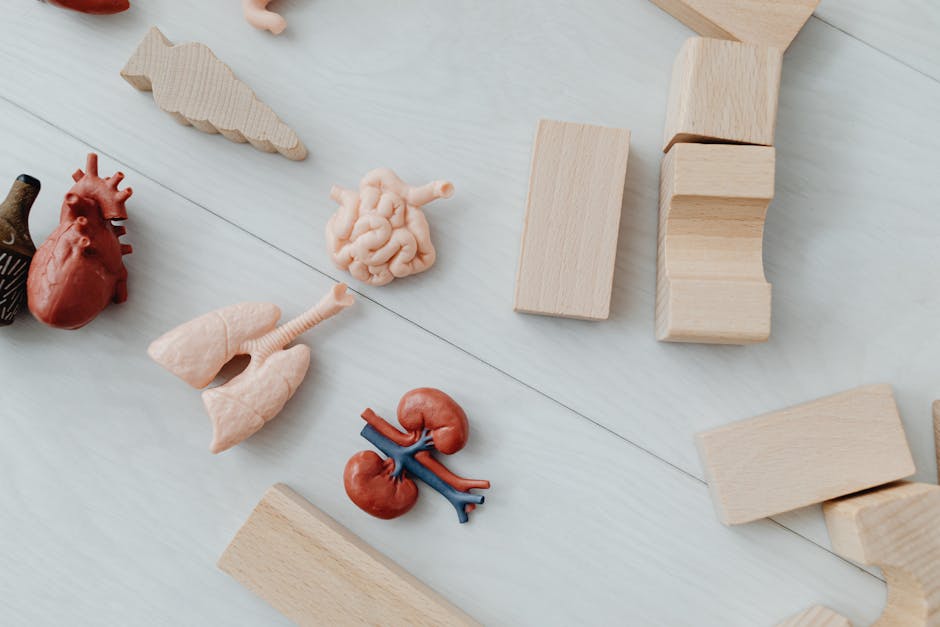Understanding Kidney Diseases
The kidneys play a crucial role in maintaining overall health, filtering waste and toxins from the bloodstream while regulating essential bodily functions like blood pressure, electrolyte balance, and red blood cell production. Despite their importance, kidney diseases often go unnoticed until they progress to advanced stages.

Understanding these conditions, their causes, symptoms, and preventative measures can empower individuals to take proactive steps toward protecting their kidney health.
What Are Kidney Diseases?
Kidney diseases encompass a range of conditions that impair the kidneys' ability to function effectively. These issues can be acute, developing suddenly, or chronic, progressing over time. The most common forms include chronic kidney disease (CKD), acute kidney injury (AKI), polycystic kidney disease (PKD), and kidney stones.
Chronic kidney disease affects millions worldwide and is often associated with other conditions like diabetes and hypertension. In contrast, acute kidney injury typically results from a sudden event such as severe dehydration or trauma that restricts blood flow to the kidneys. Polycystic kidney disease is a genetic disorder characterized by fluid-filled cysts in the kidneys that lead to organ enlargement and damage. Kidney stones form when minerals crystallize in the urinary tract, causing pain and potential complications if untreated.
Each type of kidney disease requires specific diagnosis and treatment approaches, underscoring the need for awareness about their distinct characteristics.
Common Causes of Kidney Diseases
The underlying causes of kidney diseases vary widely but often stem from systemic health issues. Diabetes is a leading cause of CKD due to prolonged high blood sugar levels damaging the delicate filtering units in the kidneys. Similarly, uncontrolled hypertension can strain the kidneys over time, impairing their function.
Other contributing factors include genetic predispositions like PKD, recurrent urinary tract infections (UTIs), autoimmune diseases such as lupus nephritis, and prolonged use of certain medications or substances like non-steroidal anti-inflammatory drugs (NSAIDs) or alcohol. Environmental exposures to toxins can also play a role in kidney damage.
Understanding these risk factors helps individuals identify potential threats to their kidney health and take necessary precautions through regular medical checkups and lifestyle adjustments.
Recognizing Symptoms
Kidney diseases are often called "silent killers" because symptoms may not appear until significant damage has occurred. Early warning signs can include fatigue, swelling in the ankles or feet due to fluid retention, changes in urine output or color, persistent itching, and high blood pressure.
As the condition progresses, individuals might experience more severe symptoms like nausea, vomiting, shortness of breath, confusion, or even chest pain. Recognizing these signs early is vital for timely intervention and management.
- Fatigue and weakness
- Swelling in extremities
- Changes in urination patterns
- Nausea or vomiting
- Persistent itching
Preventative Measures
Preventing kidney diseases largely involves maintaining a healthy lifestyle and managing risk factors effectively. A balanced diet rich in fruits, vegetables, whole grains, lean proteins, and low sodium can support optimal kidney function. Regular physical activity not only aids in weight management but also helps control blood pressure and glucose levels.
Avoiding excessive use of medications like NSAIDs without medical supervision is crucial. Staying hydrated supports kidney filtration processes but should be balanced based on individual health needs. For those with predisposing conditions such as diabetes or hypertension, adhering to prescribed treatments and monitoring plans is key to minimizing risks.
Smoking cessation and limiting alcohol intake further reduce the likelihood of developing kidney-related complications.
Treatment Options for Kidney Diseases
The treatment approach for kidney diseases varies depending on the specific condition and its severity. Early stages of CKD may only require lifestyle changes coupled with medication to manage blood pressure or glucose levels. In more advanced cases, dialysis (either hemodialysis or peritoneal dialysis) becomes necessary to replace lost kidney function.
Kidney transplants are considered for end-stage renal disease (ESRD) when other treatments are no longer effective. This involves replacing the damaged kidney with a healthy one from a donor. For conditions like PKD or recurrent kidney stones, surgical interventions might be required alongside ongoing management strategies.
Collaboration with healthcare professionals ensures personalized care plans that address each patient's unique needs while improving quality of life.
The Importance of Early Detection
Early detection is pivotal in mitigating the impact of kidney diseases on overall health. Routine screenings that assess urine protein levels (urinalysis) or measure serum creatinine help identify issues before they become severe. Blood tests estimating glomerular filtration rate (GFR) provide insights into how well the kidneys are functioning over time.
For those at higher risk (such as individuals with diabetes or a family history of kidney disease) regular consultations with nephrologists can aid in monitoring potential warning signs closely. Early intervention not only slows disease progression but also reduces long-term healthcare costs associated with advanced treatments like dialysis or transplantation.
Resources for Support
Navigating a diagnosis of kidney disease can be Organizations like the National Kidney Foundation (kidney.org) offer educational materials alongside access to support groups that connect patients facing similar challenges. Many hospitals also provide dedicated renal care teams comprising dietitians, social workers, and specialists who collaborate on comprehensive treatment plans tailored to individual needs.
Leveraging these resources empowers patients with knowledge while fostering a sense of community during their healthcare journey.
Kidney diseases demand attention due to their potential impact on quality of life and overall health outcomes if left unmanaged. By understanding their causes, recognizing early symptoms, adopting preventative measures where possible (and seeking timely medical intervention when needed) it becomes feasible not only to protect but also enhance long-term renal health sustainably.
The significance lies not just within statistics but extends deeply into personal experiences shared by individuals worldwide, a reminder that proactive care today shapes healthier tomorrows ahead for all concerned stakeholders alike!
